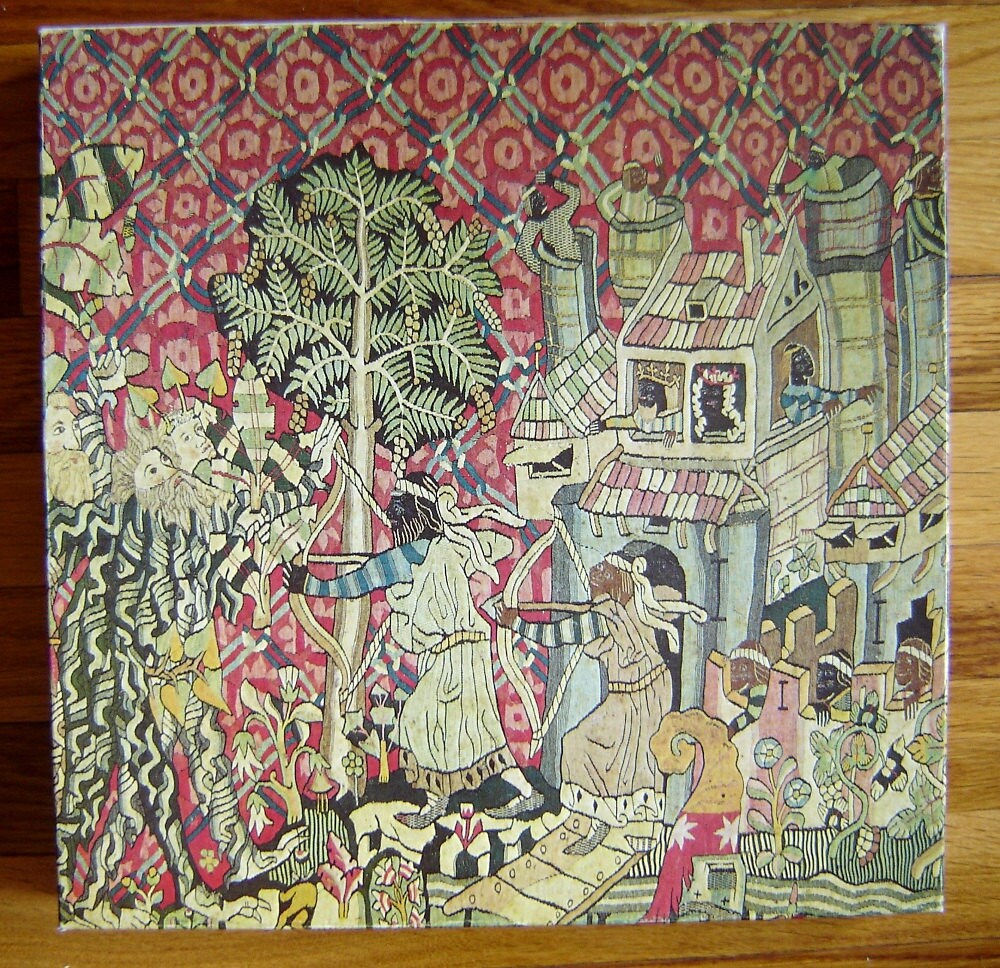Etymology
In Latin, the word Maurus (plural Mauri) is in origin an ethnonym, the name of the Mauri people who were also eponymous of the Mauretania province of the Roman empire on the northwestern fringe of Africa. The Latin form of the name is adapted from Greek ethnography, where the people was known Mauroi (Μαῦροι). The Greek name has been speculatively connected to the adjective ἀμαυρός, meaning "dark; faint, dim".
Modern meanings
In the Medieval Romance languages (such as Portuguese, Spanish, French, Italian, Romanian), the Latin word took such forms as mouro, moro, moir, mor and maur. From denoting a specific Berber people in western Libya, the name acquired more general meaning in the Romance languages during the medieval period, partly developing a general meaning of "dark-skinned", partly (much like "Saracens") taking a religious meaning of "infidels" in the context of the Crusades and the Reconquista.
Beside its usage in historical context, Moor and Moorish (Italian and Spanish: moro, French: maure, Portuguese: mouro, Romanian: maur) is used to designate an ethnic group speaking the Hassaniya Arabic dialect. They inhabit Mauritania and parts of Algeria, Western Sahara, Tunisia, Morocco, Niger and Mali. In Niger and Mali, these peoples are also known as the Azawagh Arabs, after the Azawagh region of the Sahara.
In Spain, modern colloquial Spanish use of the term "Moro" is derogatory for Moroccans in particular and North Africans in general. Similarly, in modern, colloquial Portuguese, the term "Mouro" was primarily used as a designation for North Africans and secondarily as a derogatory and ironic term by northern Portuguese to refer to the inhabitants of the southern parts of the country (Lisbon, Alentejo and Algarve). However, this designation has gained more acceptance in the South.
In the Philippines, a former Spanish colony, many residents call the local Muslim population in the Southern islands Moros. They also self-identify that way (see Muslim Filipino). The term was introduced by the Spanish colonizers. Within the context of Portuguese colonization, in Sri Lanka (Portuguese Ceylon), Muslims of Arab origin are called Moors (see Sri Lankan Moors).
Moreno can mean dark-skinned in Spain and Portugal, as well as in Brazil. Also in Spanish, morapio is a humorous name for "wine", especially that which has not been "baptized" or mixed with water, i.e., pure unadulterated wine. Among Spanish speakers, moro ("Moor") came to have a broader meaning, applied to both Moros of Mindanao in the Philippines, and the moriscos of Granada. Moro is refers to all things dark, as in "Moor", moreno, etc. It was used as a nickname; for instance, the Milanese Duke Ludovico Sforza was called Il Moro because of his dark complexion.
In Portugal and Spain, mouro (feminine, moura) may also refer to supernatural beings known as enchanted moura, where "moor" implies 'alien' and 'non-Christian'; These beings were siren-like fairies with golden or reddish hair and a fair face. They were believed to have magical properties. From this root, the name moor is also applied to unbaptized children, meaning not Christian. In Basque, mairu means moor and also refers to a mythical people.
Moors is also a term used to identify Muslims in Sri Lanka. Sri Lankan Moors are 12% of the population.. The Moors in Sri Lanka are descendants of Arab traders who settled in Sri Lanka in the mid-6th century. When the Portuguese arrived in the early 16th century, they labelled the Muslims in the island as Moors as they saw them resembling the Moors in North Africa. The Sri Lankan government to this day identifies the Muslims in Sri Lanka as "Ceylon Moors".
The Goan Muslims - a minority community who follow Islam in the western Indian coastal state of Goa are commonly referred as Moir (Konkani: मैर) by Goan Catholics and Hindus.[a]. They Moir is derived from the Portuguese word mour (Moors).


